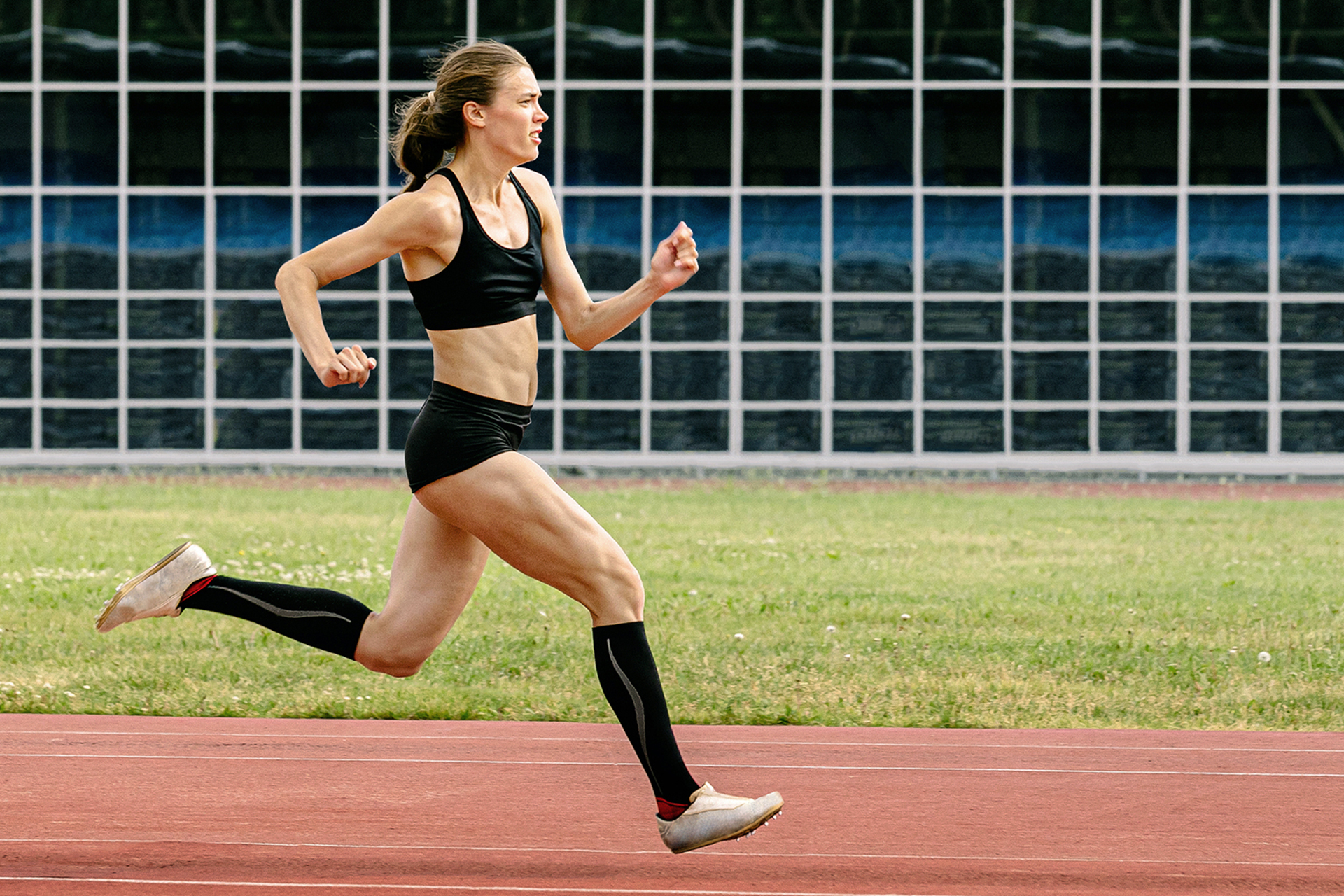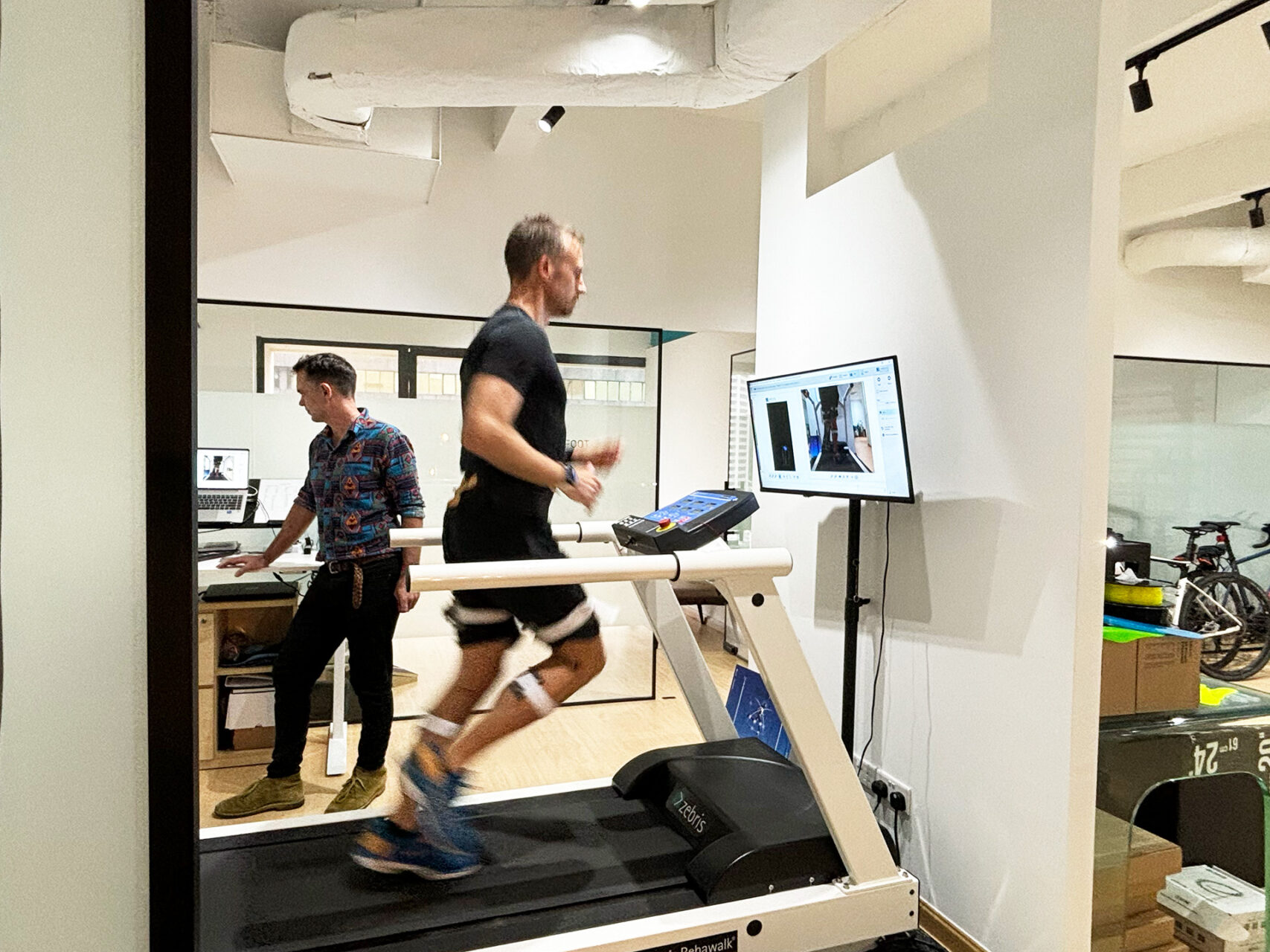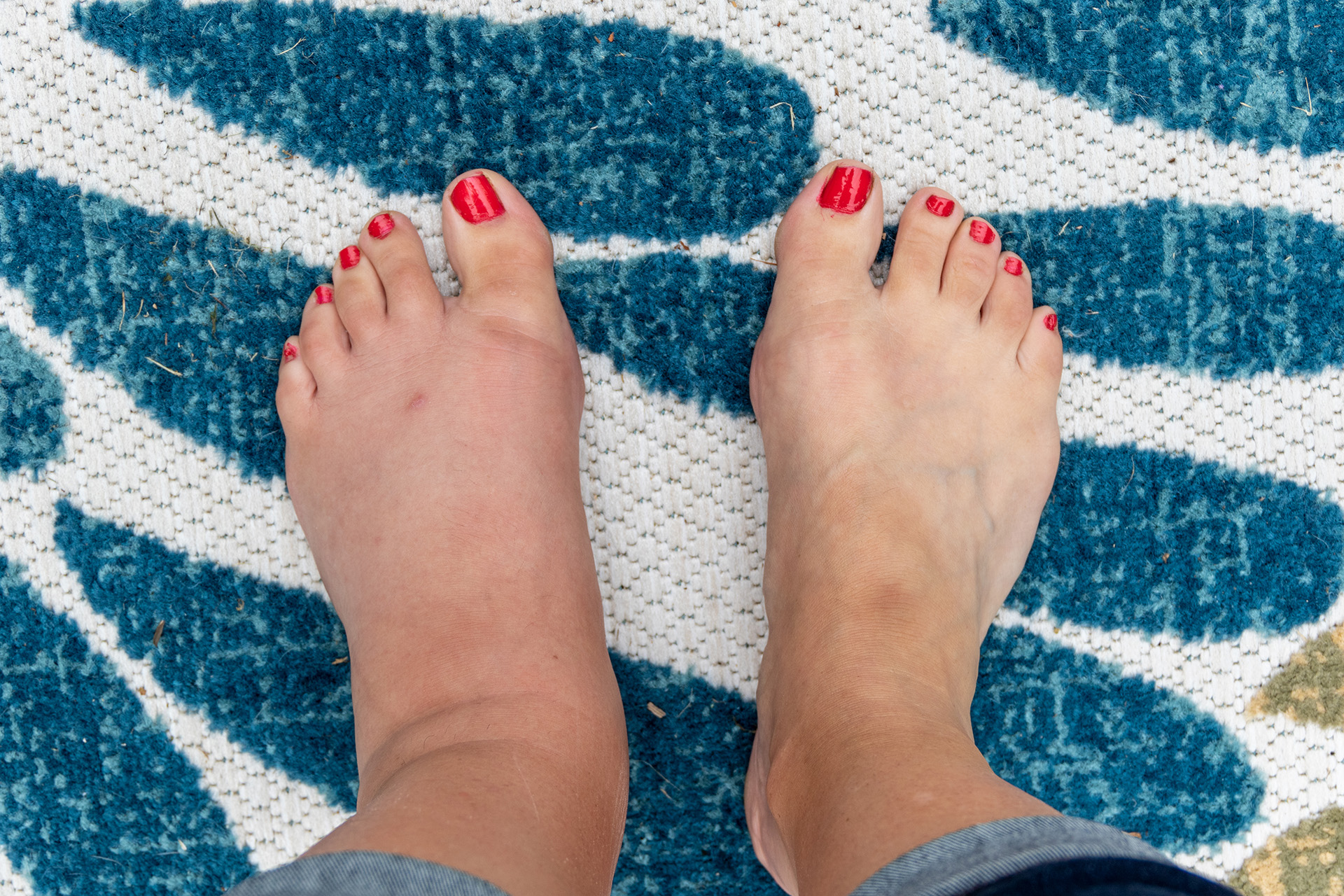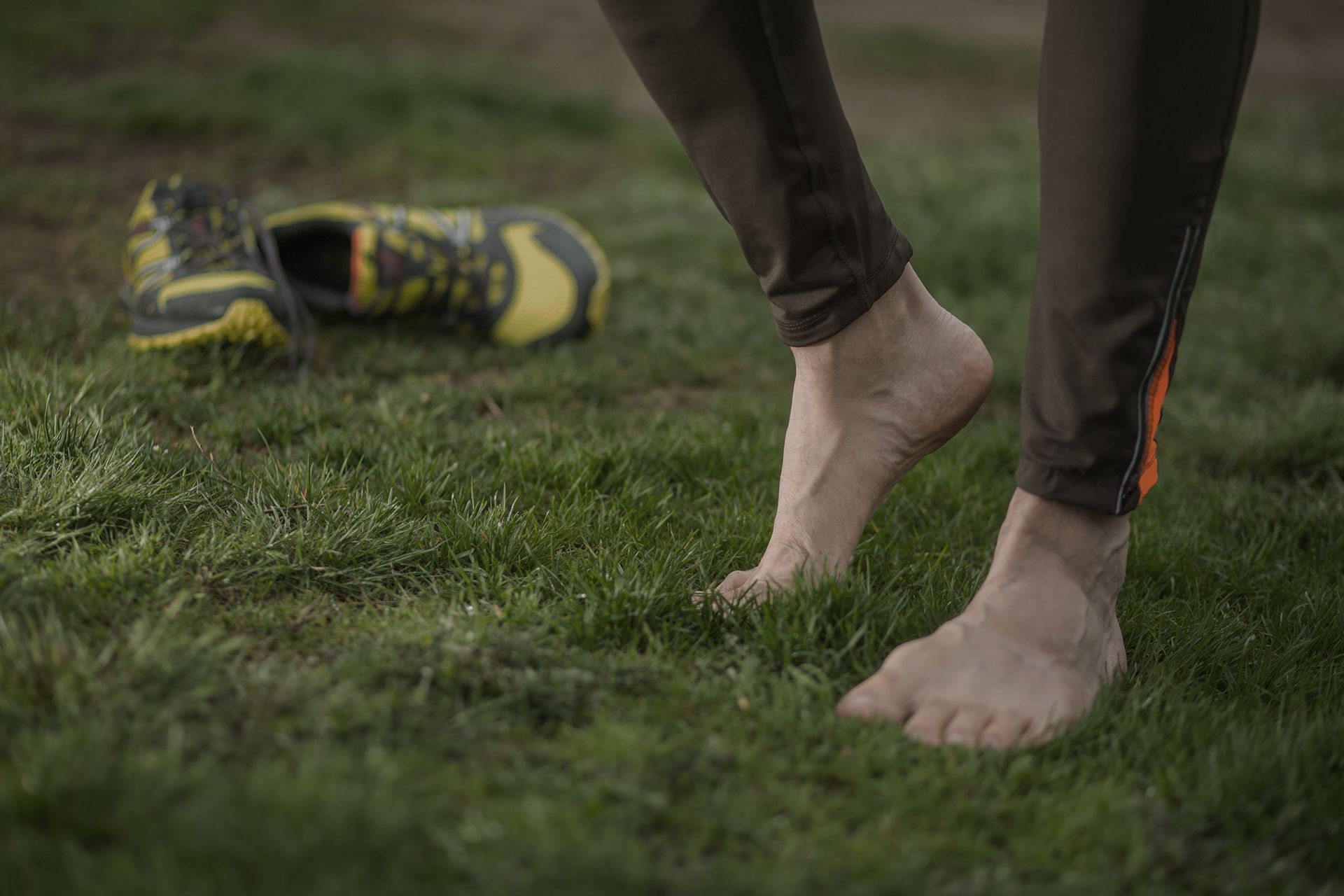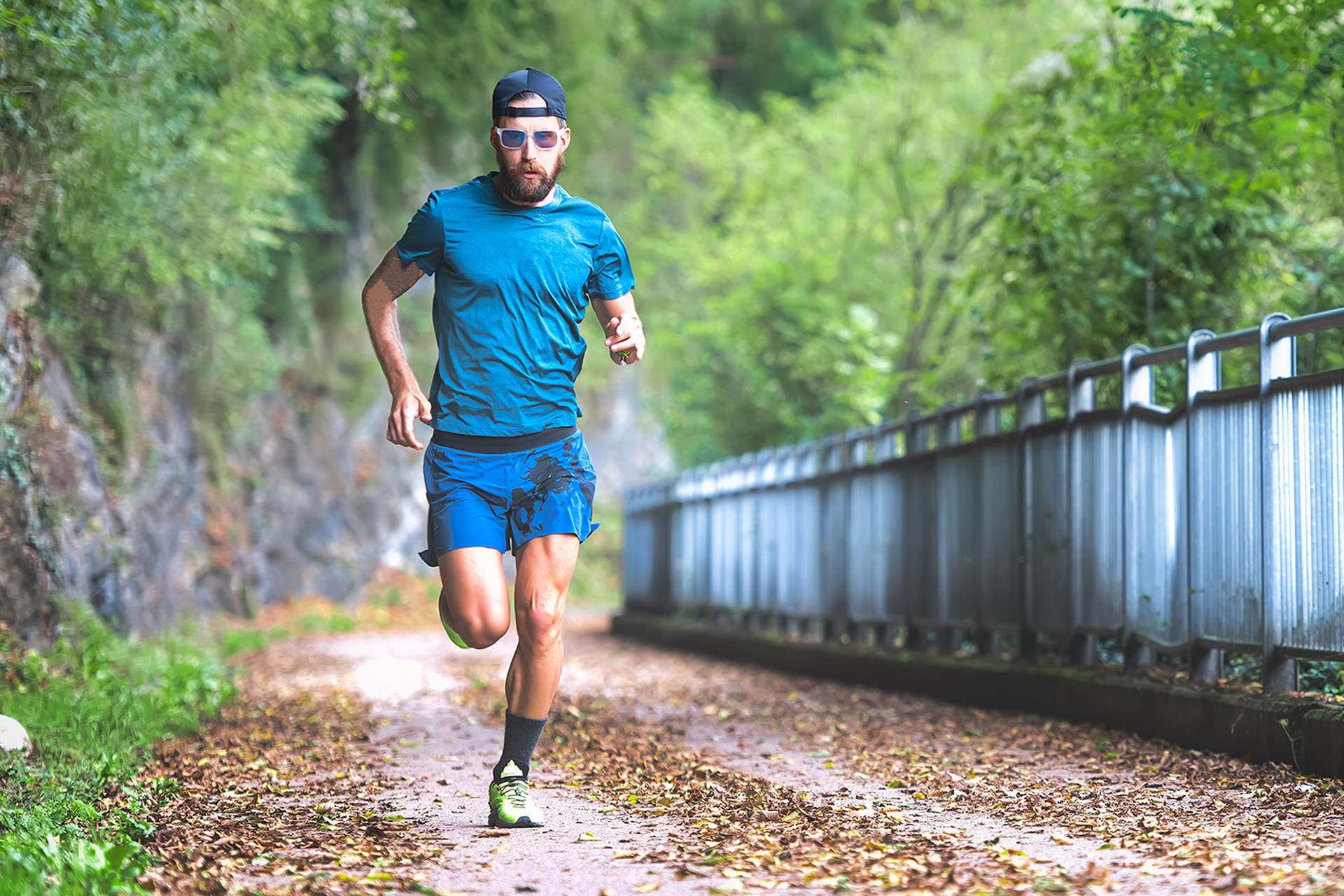We often associate exercise with pain, thinking muscle soreness after a good workout as a sign of a good effort. That kind of ache is different from foot arch pain after running. So many foot, ankle and lower limb conditions can contribute to your pain, and we’re here to help you explore the potential causes of why your feet hurt after running and what you can do about it.
Types of Foot Pain from Running
A few common foot dysfunctions and injuries are the reasons for foot pain after running. We can also better understand them depending on where the pain is located on your foot.
Achilles Tendinitis (Bottom of Foot)
This overuse injury affects the Achilles tendon, the tissue connecting the calf muscles to the heel bone. It’s particularly common in runners who suddenly increase the intensity or duration of their runs, and middle-aged individuals who engage in sports like tennis or basketball occasionally, often on weekends.

The symptoms of Achilles tendinitis often start with a mild ache in the back of the leg or above the heel after running activities. More severe pain can follow prolonged running, stair climbing, or sprinting. Symptoms might also include tenderness or stiffness, particularly noticeable in the morning, and usually improves with mild activity.
The causes of Achilles tendinitis stem from repetitive or intense strain on the Achilles tendon. Factors contributing to this strain include certain types of exercise, foot mechanics like a flat arch, obesity, and even some medications.
Metatarsal Stress Fracture (Top of Foot)
A metatarsal stress fracture is characterised by a small crack in one of the metatarsal bones. This injury manifests as pain along the top of the foot, escalating from a mild annoyance present only while running to continuous pain that interferes with daily activities and sleep. Stress fractures are considered overuse injuries, exacerbated by factors such as rapid increases in training intensity, running on hard surfaces, and inappropriate footwear.
Metatarsalgia (Ball of Foot Pain)
One common condition that can cause ball of foot pain after running is metatarsalgia. This condition involves pain and inflammation in the ball of your foot and can arise from running and jumping activities. It’s often due to excessive pressure on the forefoot, which can stem from various causes, including foot deformities, ill-fitting shoes, or intense physical activity.
Overpronation affecting biomechanics and gait can also contribute to foot pain after running. When the foot excessively rolls inwards due to inadequate arch support, it places additional stress on the forefoot, potentially leading to pain in the ball of the foot during activities such as running.
Proper footwear with shock-absorbing insoles or arch supports may prevent or alleviate symptoms.
Morton’s Neuroma (Ball of Foot)
Morton’s neuroma pain is typically associated with the ball of the foot, especially between the third and fourth toes. This condition involves thickening tissue around a nerve leading to the toes, causing sharp, burning pain or discomfort in that area. You might feel like you’re standing on a pebble in your shoe, or experience stinging, burning, or numbness in the affected toes.
High-heeled or tight shoes can also contribute to the development of Morton’s neuroma. Many find relief by switching to shoes with lower heels and wide-toe boxes, while more severe cases may require corticosteroid injections or surgery for treatment.
Peroneal Tendonitis (Outer Edge Foot Pain)
Foot pain on the outside edge after running can be caused by several conditions, including peroneal tendonitis.
Peroneal tendonitis, affecting the tendons along the outer foot, results from overuse or sudden activity increase. Peroneal tendinitis is characterised by inflammation and irritation of the peroneal tendons, which are located along the outer edge of the foot. This condition typically arises from overuse, such as extensive walking or running, or a sudden increase in physical activity.

Symptoms often include pain, swelling, and tenderness along the outer foot and ankle. Treatment usually involves rest, ice, and physical therapy exercises to strengthen and stabilise the foot and ankle to alleviate symptoms and prevent recurrence.
Plantar Fasciopathy (Foot Arch Pain)
Plantar fasciopathy, often linked to issues in the plantar fascia, presents as pain in the foot’s arch. Factors such as excessive strain, inappropriate footwear, or anatomical issues can contribute to its development. This condition arises from stress and micro-tears in the fascia, a thick band of tissue supporting the foot’s arch.

Despite the common use of ‘plantar fasciitis’, true inflammation is rare due to the fascia’s minimal blood supply. Instead, the pain results from these tears and the tissue’s subsequent response, exacerbated by biomechanical factors like flat feet or high arches. This complex interplay leads to the characteristic bottom-of-foot pain after running associated with plantar fasciopathy, highlighting the need for precise podiatric management approaches.
How To Relieve Foot Pain from Running
As you can see, there are many potential causes for your foot pain after running. Thankfully, there is also a wide range of possible solutions, some using advanced technology and others using conservative methods to relieve foot pain from running.
RehaWalk® Gait Retraining
The best-in-class pressure sensor treadmill and gait rehabilitation system significantly benefit individuals experiencing foot arch pain following running activities. The system’s detailed gait analysis can pinpoint specific imbalances or inefficiencies in a runner’s gait that may contribute to arch pain, allowing for personalised rehabilitation programs. These programs, tailored to strengthen the muscles supporting the foot arch and improve overall foot biomechanics, can alleviate stress on the arch and mitigate pain.

Additionally, RehaWalk®’s dynamic visual cueing and feedback mechanisms are designed to encourage proper foot alignment and balance, enhancing stability around the foot arch. This comprehensive approach addresses immediate pain relief and targets underlying issues, potentially preventing future pain recurrence and maintaining long-term foot health.
Custom Insoles
These specially made inserts for your shoe are tailored to your specific foot structure and running biomechanics, providing targeted support and cushioning where needed most. They help distribute pressure evenly across your feet, correct abnormal movements (such as overpronation or supination), and improve overall foot alignment. This personalised support can alleviate stress on the feet, ankles, knees, and hips, reducing the risk of overuse injuries and relieving pain caused by conditions like plantar fasciosis, Achilles tendonitis and metatarsalgia.
Proper Footwear Assessments
Improper footwear is one of the most common causes of foot pain after running, and is one of the easiest to remedy. The right pair can significantly alleviate foot pain by providing proper support, cushioning, and fit tailored to your foot type and running style.
They absorb impact, reduce stress on your feet, and correct biomechanical issues like overpronation or supination. This helps prevent injuries and relieves existing foot conditions such as plantar fasciitis or metatarsalgia. Ensuring your shoes are activity-specific and fit well can transform your running experience, making them more comfortable and reducing the likelihood of post-run pain.
Shockwave Therapy
This non-invasive treatment uses acoustic sound waves to stimulate healing in injured foot tissue, promoting blood flow and collagen production. It’s effective for conditions like Achilles tendinitis, reducing pain and accelerating recovery. By breaking down scar tissue and enhancing tissue regeneration, Shockwave Therapy helps restore function and alleviate pain, allowing runners to return to activity sooner with improved foot health.

3D Gait Analysis
Your podiatrist uses advanced technology to evaluate your running mechanics using advanced imaging and sensors, identifying imbalances and inefficient movements contributing to foot pain. This detailed assessment helps customise treatment plans, including exercises and orthotics, to correct your gait, reduce stress on your feet, and prevent further injuries. 3D Gait Analysis can alleviate foot pain and enhance overall running efficiency by optimising your running form.
Are You Ready To Alleviate Your Running Foot Pain?
Now that you’re more aware of what could be causing your foot pain after running, you may wonder what you can do next. The most important first step is to have a session with a podiatrist, who can properly diagnose your condition and develop an individualised treatment plan. That’s the best way to stay on track and keep running so you can address the underlying issue and not plaster over it with inefficient solutions.
So don’t wait. Make an appointment today with The Foot Practice, where our sports podiatrist can provide a catered management plan to get you back on your feet.

